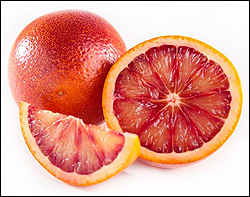
Based on their chemistry, pure essential oils obtained via distillation will NOT mix with water. Not only will they NOT mix with water, their specific gravity in most cases is lighter so they will float on top. Anyone who disputes this fact had better do some research on how essential oils are extracted from plants. I have included a simple yet colourful diagram to demonstrate this process to those who are unfamiliar with essential oil distillation.
If you are reading this and are sure that YOUR essential oils will mix with water, think again. If they do, they are probably already diluted with a solvent or alcohol which is a favorite trick of many essential oil companies. How do you think they can sell commodities such as these at a cheaper price than everyone else?
Conversely some will make ridiculous claims that their oils are sooo pure they’ll mix with water which is a false justification to charge excessively higher prices. The irony is that if it is a pure undiluted essential oil with no chemical alterations. it will not mix with water.
There are many chemicals which can solubilize essential oils so they become miscible with water but only a few are on the natural side. One is glycerine, a non-fermented alcohol which is very skin friendly, inexpensive and easy to obtain. It does not completely break down all essential oils, but does enough of a job that the essential oil is dispersed safely when adding water.
The other option is alcohol, either pure ethyl alcohol (grain) or denatured alcohol which must be at least 60% while 100% (anhydrous) is optimal. Pure ethyl alcohol is strictly controlled in Canada and costs a small fortune creating a barrier for the average person to obtain. Denatured is relatively inexpensive and not controlled, but there are few suppliers out there. For those of us in Canada, vodka is not useful as our liquors are limited to 40%.
Contrary to many written resources, witch hazel can’t dissolve an essential oil either. I’m not sure where this myth comes from other than the idea that commercial witch hazels tend to contain up to 30% alcohol with the concentrated plant extract and the rest water. This is not nearly enough alcohol content to dissolve an essential since at least 60% is required.
An average ratio is 1 I.U. drop essential oil to 1 ml glycerine or alcohol. This can vary slightly with different essential oils and the amounts you wish to dilute. Once the essential oil is solubilized, you can add any amount of water required. If you do not take this step, you could end up with either an ineffective product or painful application.
For example if you create a room spray by adding essential oils and water in a bottle and shake before use, the essential oil will not make it to the bottom long enough to be sucked up through that little hose to the sprayer. As the spray is used up, the essential oil will continue to float on top of the water. What you are left with is a mess of oxidized essential oil in the bottom of the bottle. Ineffective product!
If you intend to add essential oils to a bath without premixing, your sensitive body parts will have an uncomfortable encounter with the pure essential oils which are still floating on the top of the water. Painful application!